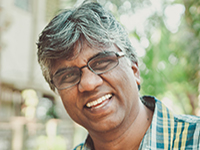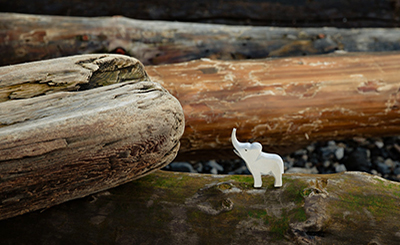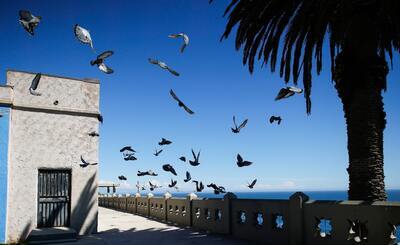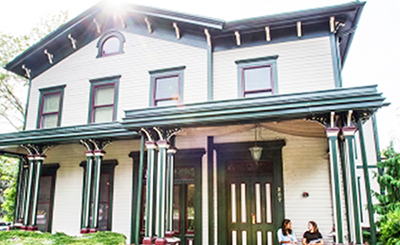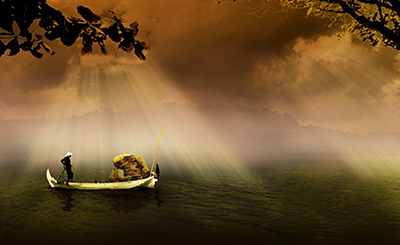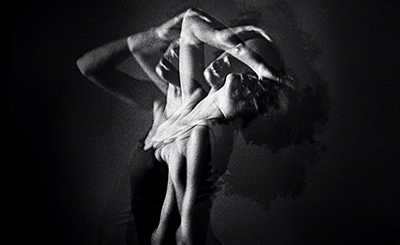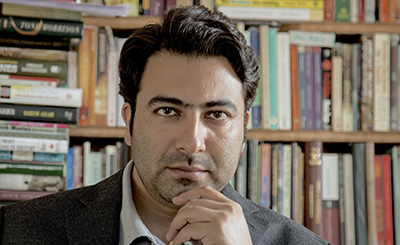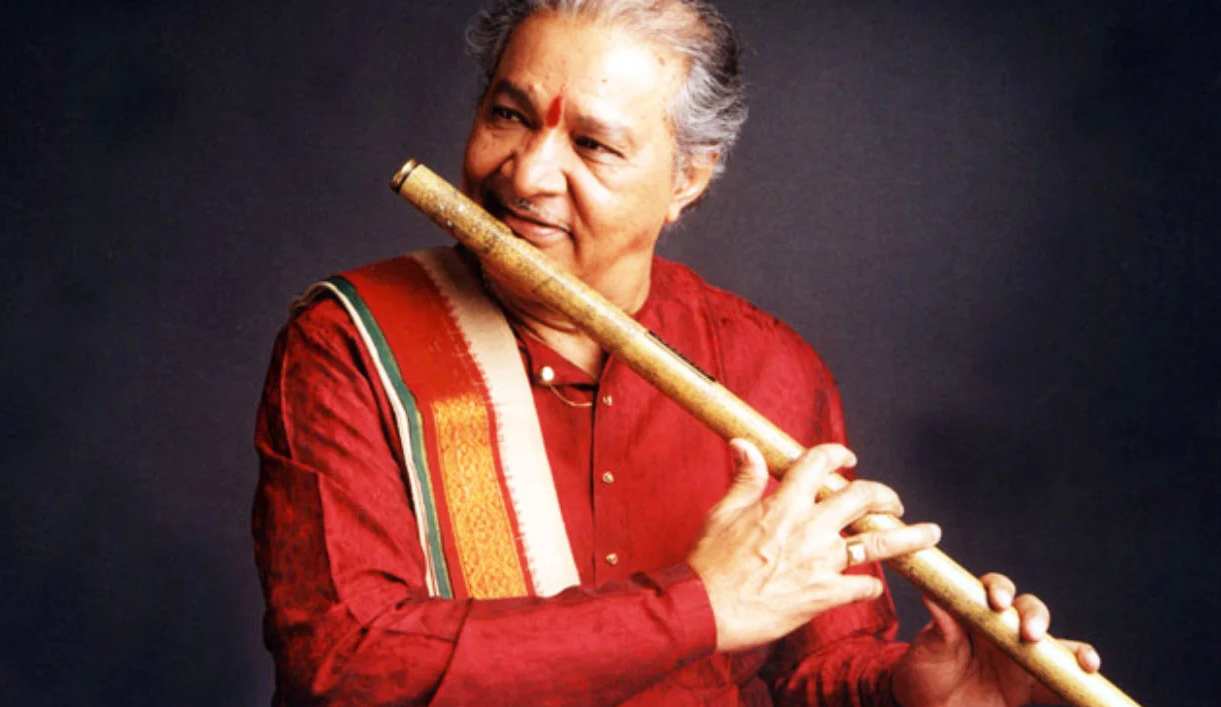
Pandit Hariprasad Chaurasia.
Pandit Hariprasad Chaurasia’s name is synonymous with the flute, and rightly so, because together, the instrument and the player, continue to bring joy and peace of mind to millions across the world. Sathya Saran’s book, Breath of Gold, captures the Padma Vibhushan awardees’s life, his love for music, his unceasing quest to learn, his devotion to his guru Annapurna Devi, his partnerships with Pandit Shiv Kumar Sharma and others, his myriad compositions and his desire to nurture musicians for the future, in a well-told story packed with anecdotes.
The son of wrestler Chedi pehelwan of Allahabad, Hariprasad Chaurasia initially trained to be a pehelwan like his father, a preparation that perhaps helped in building the strength and stamina that enables him to play to this day. The opportune arrival of a music teacher Rajaram next door gave his musical journey a direction, though at a rather late age of 15. Rajaram, the first of many mentors and gurus, taught young Hariprasad the basics of classical music, evaluated his limited vocal range and suggested he choose an instrument to play if he wanted to pursue music. Hariprasad chose the humble flute, cheap and easily available, and learned by listening to the musicians who played on the All India Radio. Soon enough, he approached Pandit Bholanath Prasanna, an artist at AIR Allahabad, with a request to teach. Pandit Bholanath not only taught him the nuances of playing the flute but also prodded Hariprasad into auditioning for AIR and securing a job as a B-grade artiste.
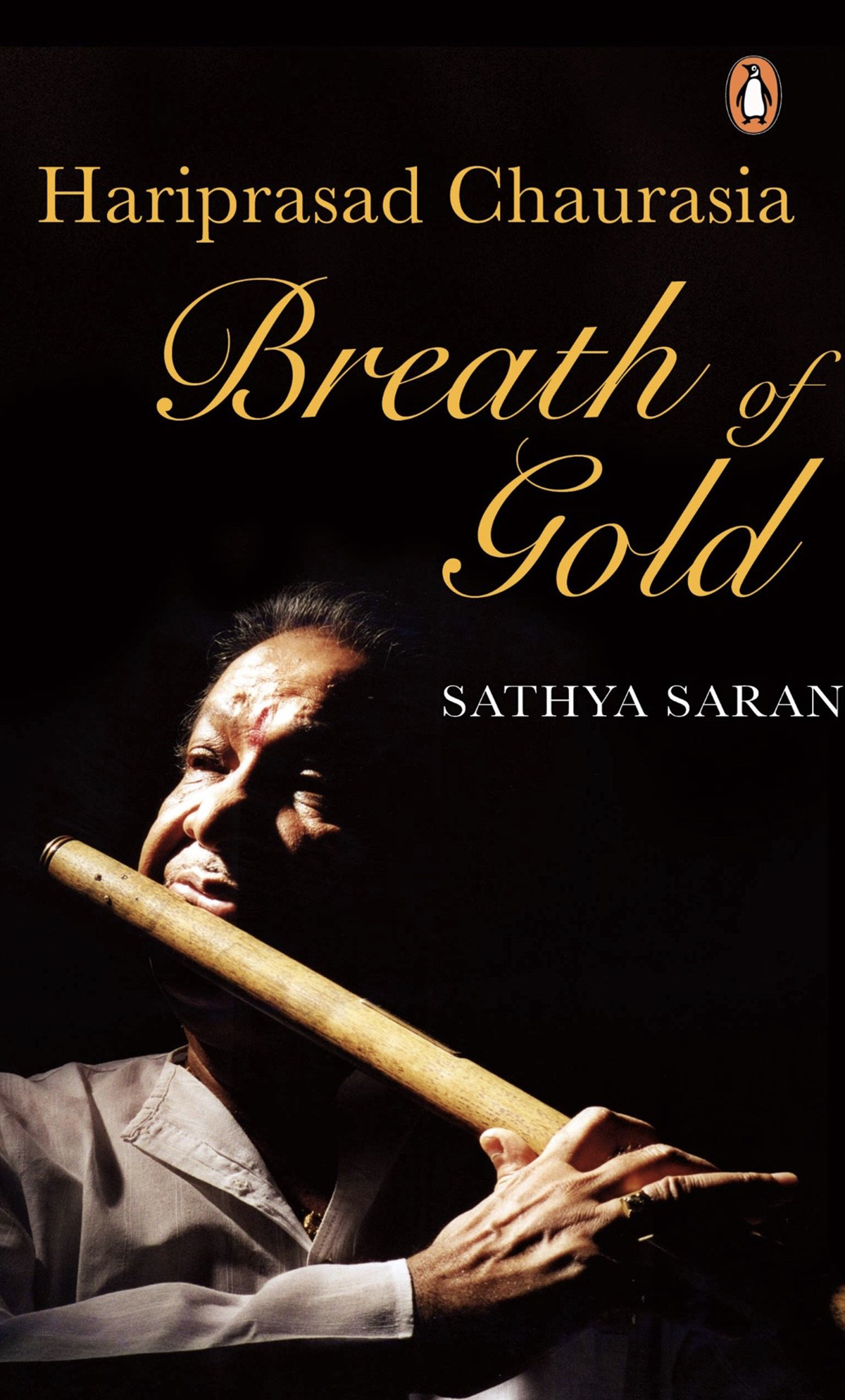
Hariprasad Chaurasia: Breath of Gold, Sathya Saran, 2019, Penguin India, 253 pages, Rs 599
The fact that Hariprasad kept finding mentors and opportunities at every stage of life cannot simply be attributed to luck; a lot has to do with his open, humble and learning mindset. Hariprasad’s stint with the Cuttack AIR station, his first job, jumpstarted his artistic career as the Director of AIR, Cuttack, Krishnamurthy, a musician himself, took the young flautist under his wing. The proximity to great musicians and artistes such as Pandit Bhubaneshwar Mishra, playing for hours on for Mishra's compositions in Oriya plays and films, for Krishnamurthy’s orchestra and for Odissi dance exponent Kelucharan Mahapatra’s Odissi performances gave him an invaluable exposure to music, art and the ways of the masters.
In the normal scheme of things, Hariprasad’s transfer to AIR, Bombay in 1962 initially appeared to be difficult as he was well-settled in Cuttack, but it was a move that firmly established him on the map. He never looked back after that. Hariprasad initially played for AIR, then for Gujarati plays and then for films. The incredible number of hours he played, day and night, and the quality of people he associated with rapidly broadened his expertise, spread his fame. His famous partnership with Shiv Kumar Sharma began and Shiv-Hari began composing for films such as Silsila, Darr, Chandni and Lamhe, among others. The duo’s private album Call of the Valley, with Brij Bhushan Kabra, remains the highest-selling Indian classical composition till date. Hariprasad played with Pandit Ravi Shankar’s troupe of great musicians Alla Rakha, L Subramanyam, Shiv Kumar Sharma and with George Harrison on the Dark Horse Records release Shankar Family and Friends. He collaborated with artistes like John McLaughlin, Jan Garbarek, Ken Lauber and Ian Anderson, among others. The boy from Allahabad, and his flute, were now jetsetting across the world, performing to elite audiences.
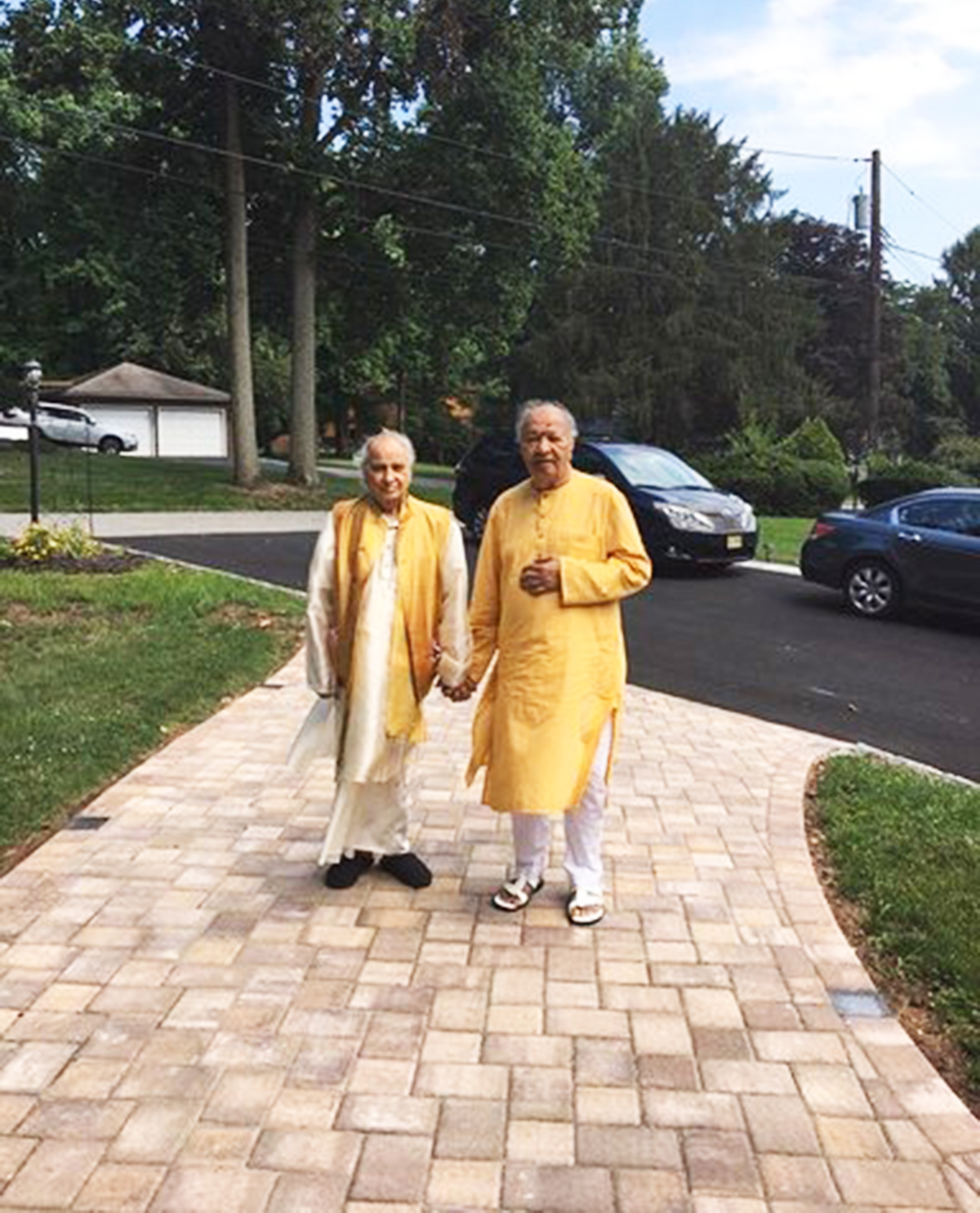
With friend Pt Jasraj in the US in 2019
Pandit Hariprasad, at the height of his success, realised that he needed to deepen his understanding of music, and with trademark humility, sought out Annapurna Devi, daughter of Baba Allauddin Khan of Maisar, the renowned classical maestro, and estranged wife of Pandit Ravi Shankar. It took three years of relentless pursuit for her to take him on as her student and he learned from his guru for several years, adding many layers to his music. Today, Hariprasad Chaurasia, slowed down by Parkinson’s disease, gives back to the world of music, just as his guru had, through his Vrindaban Gurukuls at Bombay and Bhubaneshwar, nurturing musicians for the future.
Breath of Gold is a fascinating account of the journey of a man who submitted to his destiny, and went about his work with utmost dedication and humility, always remaining a student. For someone who was not born into a family of musicians, to achieve so much in a lifetime hints at the learning mindset of the person, the humility to learn from everyone and every experience. Though he played with the best in the business, Hariprasad is known to be happy to play his flute, whether it is for an audience of eight, to unruly crowds, for 24-hour-long performances on Janmashtami or to elite audiences in royal palaces. It is all an opportunity to play and celebrate the bansuri that repaid his trust and led him to places he never imagined.
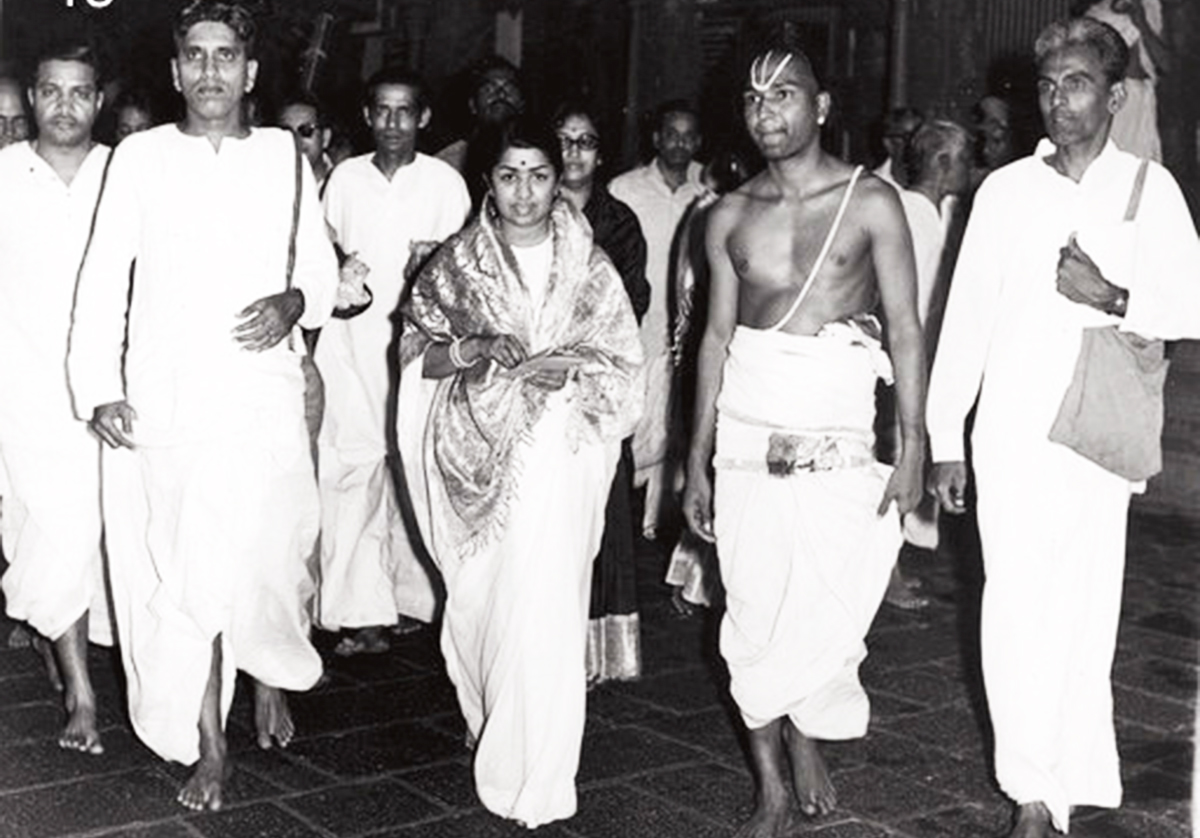
Accompanying Lata Mangeshkar to play exclusively for the Lord of Tirupati
Structured into parts covering important phases and partnerships of his life, the 253-page book is highly readable. The short chapters with interludes containing anecdotes and insights work well. Sathya Saran’s previous works included books on S.D. Burman and Jagjit Singh, so one assumes that she understands the world of music and perhaps there was a conscious effort to weave in the rhythm of the flute into the writing and structuring of the book. Apart from primary sources such as family and friends, colleagues and students, Saran draws from various other sources such as previously authored books and blogs on Hariprasad Chaurasia; Surjit Singh’s book Woodwinds of Change being one notable source.
One need not have a deep understanding of music to read the book and the reader gets a fair insight into what it took Pandit Hariprasad Chaurasia to achieve such heights. For those who love music, Breath of Gold is a worthy addition to the collection.
More from The Byword
Comments
*Comments will be moderated



